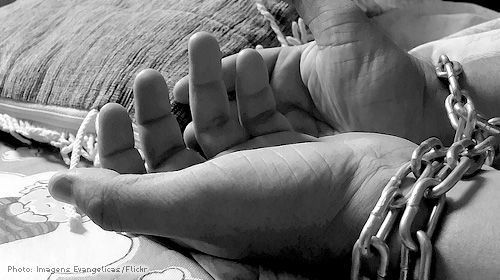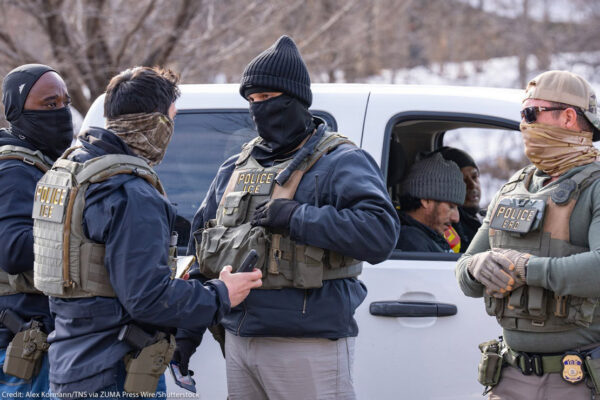
Some of America's most vulnerable workers are victims of modern-day slavery, and the government knows it. What's worse: These workers are protecting U.S. military and economic interests – but the U.S. isn't protecting them.
In its annual Trafficking in Persons Report, released Friday, the State Department acknowledged that trafficking and forced labor still exist in America. The report includes several examples: abuse of third-country nationals trafficked to work on military bases, migrant domestic workers subjected to forced labor by diplomats and international organization personnel, and temporary guest workers in a variety of industries forced to work under horrifying conditions with nowhere to turn. While it's important that the report stresses there's more the U.S. government can do to stem trafficking in America, it offers nothing new and recycles much of its findings and recommendations from past years — recommendations that still haven't been fully implemented.
Because the U.S. government has failed to implement essential protections, trafficking remains a pervasive and ongoing problem in this country. Take, for example, Prakash Adhikari, a young man looking to provide a better life for his family. He left his village in Nepal in 2004 after local labor recruiters falsely promised him work in five-star hotels and restaurants in Jordan.
Based on this promise, Adhikari borrowed heavily to pay the recruitment fees he had been charged. After he arrived in Jordan, his passport was seized, and he was transported against his will to Iraq to work for a U.S. government subcontractor called Daoud & Partners. En route to the military base, the convoy in which he was traveling, along with dozens of men in the same predicament, was attacked by Iraqi insurgents. He and 11 other similarly trafficked men in the convoy were later executed.
Sadly, Adhikari's story is not unusual. Since 2003, similar labor trafficking schemes, enabled by the government's deficient oversight and accountability mechanisms, have resulted in thousands of foreign workers hired to work on U.S. government contracts in Iraq, Afghanistan, and elsewhere, as cooks, janitors, cleaners, and mechanics on U.S. military bases and diplomatic missions. In 2011, there were more than 60,000 such workers in Iraq and Afghanistan alone. Many are trafficked into jobs that pay much less than advertised and that are located in different countries than indicated on their contracts. Often, these jobs come with unsafe and unhygienic living and working conditions.
Trafficking and forced labor is not limited to U.S. military bases, either. Because of serious defects in the structure of the guest worker program and the U.S. government's failure to regulate and adequately supervise visa schemes to prevent abuse, guest workers and migrant domestic workers inside the United States are also subjected to trafficking and forced labor. Abusive employers are empowered by a system that allows extortion to be a permissible prerequisite for employment, and that makes it extremely difficult for workers to assert their rights.
Such employers often confiscate employees' documents, curtail their movement, force them to pay exorbitant fees for subhuman housing, pay them lower salaries than promised, and threaten them with deportation should they complain. Look no further than the 500 Indian men trafficked to Texas and Mississippi in 2007 to work as welders and pipefitters for Signal International, a marine construction company.
(The ACLU and others have brought a lawsuit against Signal and its network of labor recruiters and brokers.)
As I explained at the UN Human Rights Council session in Geneva last week, the United States needs to do much more to protect the workers supporting its military and diplomatic efforts abroad and industries here at home. The State Department's report still doesn't call on the United States to fix the fundamental flaws in its own visa programs that import workers. It also fails to mention the need to adopt regulations to implement an executive order and a legislative provision that were merely first steps to ending trafficking on federal government contracts.
For starters, new standards must allow workers to leave abusive employers and seek employment elsewhere in the United States. Mechanisms must also be put in place that oversee labor conditions and allow workers to report violations.
Absolutely nothing justifies binding a human being to his or her abuser. We're glad the government recognizes that – but it's time to act.
Learn more about human trafficking and other civil liberty issues: Sign up for breaking news alerts, follow us on Twitter, and like us on Facebook.


